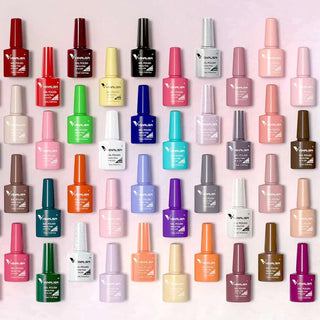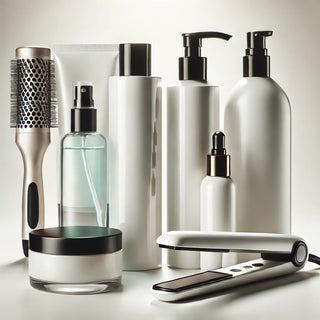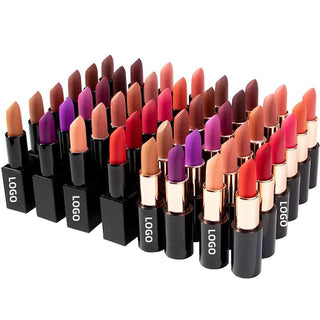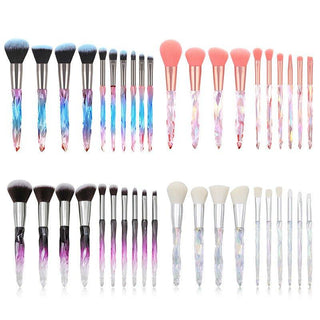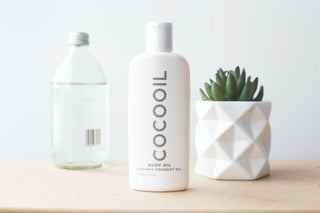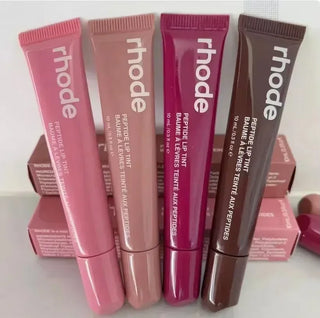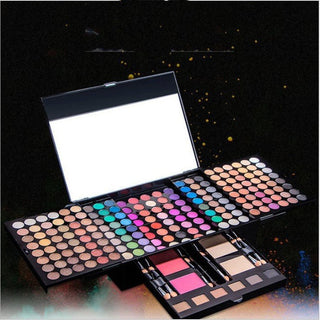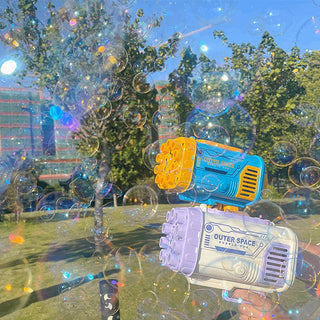Picking the right lip balm when you have sensitive skin can be a bit of a challenge. You want something that won't mess with your skin but still does its job. Hypoallergenic lip balms are a great choice because they're made to be gentle and less likely to cause any issues. In this guide, we'll walk you through everything you need to know to find the perfect balm for your lips.
Key Takeaways
- Hypoallergenic lip balms are designed to minimize skin irritation, making them ideal for sensitive lips.
- Key ingredients like shea butter and castor oil provide moisture without causing allergic reactions.
- Avoid lip balms with fragrances and certain chemicals that can trigger allergies.
- SPF is important in lip balms to protect sensitive skin from harmful UV rays.
- Always test a new lip balm on a small skin area to check for any reactions.
Understanding Hypoallergenic Lip Balm

What Makes a Lip Balm Hypoallergenic?
Hypoallergenic lip balms are specially crafted to minimize the risk of allergic reactions. These balms steer clear of common allergens like fragrances, dyes, and certain preservatives. Instead, they focus on gentle ingredients that are less likely to irritate sensitive skin. The goal is to offer a soothing experience without the worry of flare-ups or discomfort. When scanning the ingredients list, look for labels that highlight hypoallergenic properties, ensuring a safer choice for delicate lips.
Benefits of Using Hypoallergenic Lip Balm
Choosing a hypoallergenic lip balm can be a game-changer for those with sensitive skin. Here’s why:
- Reduced Risk of Allergic Reactions: By avoiding common irritants, these balms help keep your lips calm and comfortable.
- Gentle Hydration: They often contain soothing agents like aloe vera and chamomile, providing moisture without irritation.
- Peace of Mind: Knowing your lip balm is less likely to cause a reaction allows you to use it freely throughout the day.
Common Allergens to Avoid
When selecting a lip balm, it’s crucial to avoid ingredients that might trigger reactions. Here are a few to watch out for:
- Fragrances and Dyes: These can cause irritation, especially for sensitive skin.
- Lanolin: While moisturizing, it can be an allergen for some.
- Certain Preservatives: Ingredients like parabens and formaldehyde releasers might lead to allergic responses.
For those with sensitive skin, opting for a hypoallergenic lip balm is not just a preference—it's a necessity. It ensures your lips stay soft and healthy without the risk of discomfort or irritation.
Key Ingredients for Sensitive Skin

Natural Moisturizers for Lips
When it comes to keeping sensitive lips happy, natural moisturizers are your best friends. Ingredients like shea butter, honey, and castor oil offer deep hydration without causing irritation. These components are known for their soothing properties, making them ideal for anyone with delicate skin. Shea butter, for instance, is rich in fatty acids that help lock in moisture, while honey acts as a gentle exfoliator, helping to remove dead skin cells and keep your lips smooth. Castor oil, on the other hand, provides a protective barrier that seals in moisture, preventing your lips from drying out.
The Role of SPF in Lip Care
Protecting your lips from the sun is just as important as hydrating them. Lip balms with SPF, such as those containing zinc oxide or titanium dioxide, offer a physical barrier against harmful UV rays. These ingredients are particularly beneficial for sensitive skin as they are non-irritating and provide broad-spectrum protection. Regular use of SPF lip balm can prevent sunburn, discoloration, and even reduce the risk of skin cancer. Make sure to reapply throughout the day, especially if you're spending time outdoors.
Ingredients to Avoid
For those with sensitive skin, certain ingredients in lip balms can be more harmful than helpful. Here’s a list of what to steer clear of:
- Fragrances and flavorings: These can cause irritation, especially flavors like peppermint and cinnamon.
- Petroleum jelly and mineral oils: While they might seem moisturizing, they can actually block pores and lead to dryness over time.
- Menthol and camphor: These provide a cooling sensation but can result in allergic reactions and further dryness.
Choosing a lip balm with the right ingredients can make a world of difference for sensitive lips. It's about finding that balance between effective moisturizing and avoiding potential irritants. Always check the label and, when in doubt, opt for products labeled hypoallergenic.
Sensitive skin requires extra care and attention, especially when it comes to lip care. The right ingredients can not only protect but also nourish your lips, keeping them soft and healthy. Remember, your lips deserve the same level of care as the rest of your skin.
Choosing the Right Lip Balm for You

Identifying Your Skin Type
Before diving into the world of lip balms, it's crucial to understand your skin type. Are your lips often dry and flaky, or do they just need a bit of moisture now and then? Recognizing these signs helps in pinpointing the right balm for your needs. For instance, if your lips are frequently chapped, you might be dealing with dehydration or exposure to harsh weather conditions. On the other hand, if you notice irritation or redness, it could be a reaction to certain ingredients. Understanding these nuances is key to selecting a balm that truly works for you.
Reading Labels Effectively
Navigating the ingredient list on a lip balm can be daunting. However, learning to read these labels effectively can make all the difference. Look for balms that contain natural moisturizers like shea butter or coconut oil. Avoid products with artificial fragrances or flavors, which can irritate sensitive skin. Also, consider balms with SPF if you're often outdoors, as they provide an extra layer of protection against sun damage. Here's a quick checklist:
- Natural Moisturizers: Shea butter, coconut oil, beeswax
- SPF Protection: Especially important for outdoor activities
- Avoid: Artificial fragrances, parabens, and sulfates
Testing for Allergic Reactions
Even with the best intentions, sometimes a lip balm just doesn't agree with your skin. This is why testing for allergic reactions is important. Start by applying a small amount of the balm on your wrist or behind your ear. Wait 24 hours to see if any redness or irritation occurs. If all is clear, try a small amount on your lips. Remember, it's better to be cautious than to deal with a full-blown allergic reaction later on.
Choosing the right lip balm isn't just about picking a pretty package. It's about understanding your skin's needs, reading ingredients carefully, and ensuring the product is safe for you. By taking these steps, you'll find a balm that not only soothes but also protects your lips effectively.
For those who frequently switch between lip colors or apply makeup, consider using disposable lipstick makeup applicators to maintain hygiene and precision. This ensures your lip balm remains uncontaminated and effective.
Top Hypoallergenic Lip Balm Brands

Dermatologist-Recommended Options
When it comes to lip balms that are gentle on sensitive skin, dermatologists often suggest brands that steer clear of common irritants. Vanicream Lip Protectant/Sunscreen is a favorite for its SPF 30 protection, shielding lips from harmful UVA/UVB rays while keeping them hydrated. It's fragrance-free and non-toxic, making it a suitable choice for those prone to allergic reactions. Another recommended brand is Vaseline Lip Therapy Original, which provides long-lasting moisture without the use of harsh additives. Its simple formula is particularly effective for maintaining soft, supple lips.
Popular Brands for Sensitive Skin
For those who prefer tried-and-true options, a few brands consistently receive high marks from users with sensitive skin:
- Burt's Bees: Known for its natural ingredients, Burt's Bees lip balms are often praised for their gentle formulations that avoid synthetic fragrances and flavors.
- Aquaphor: This brand offers a reliable lip protectant that is free from dyes and fragrances, making it ideal for sensitive lips.
- Carmex: Although not suitable for everyone, some find its medicated formula soothing for chapped lips, but it's best to test it first if you have sensitivity concerns.
Budget-Friendly Choices
Finding a hypoallergenic lip balm that doesn't break the bank is totally doable. ChapStick Total Hydration Moisture + Tint offers a budget-friendly option that locks in moisture while adding a hint of color. It's available in several shades, allowing you to switch up your look without compromising on lip care. Another affordable pick is Blistex Medicated Lip Balm, which combines hydration with a medicated formula to tackle dryness and discomfort. Finally, Maybelline Baby Lips provides a moisturizing balm with a touch of tint, perfect for those who want a pop of color along with their hydration needs.
Choosing the right lip balm is like finding the perfect pair of jeans—it might take some trial and error, but once you find "the one," it makes all the difference. Keep your lips happy and healthy by selecting a balm that suits your specific needs, whether it's sun protection, a splash of color, or just good old-fashioned moisture.
Tips for Using Lip Balm Effectively
How Often to Apply Lip Balm
Consistency is key when it comes to moisturizing your lips. Start your day with a layer of lip balm to protect against dryness and environmental factors. Throughout the day, reapply every few hours, especially after eating or drinking. Keeping a small tube handy ensures your lips remain soft and hydrated no matter where you are.
Layering Lip Balm with Other Products
Integrating lip balm into your makeup routine can do wonders. Begin by applying a thin layer of balm before putting on lipstick. This not only prevents your lips from drying out but also ensures a smoother application. At night, after your skincare routine, apply lip balm as the final step to lock in moisture.
Storing Your Lip Balm Properly
Store your lip balm in a cool, dry place to maintain its consistency and effectiveness. Avoid leaving it in hot areas like your car, as heat can cause it to melt and lose its beneficial properties. A bedside table or bathroom drawer is ideal for easy access and to keep it in good condition.
By making lip balm a staple in your daily routine, you'll notice a significant improvement in the texture and health of your lips. It's a simple step that can make a big difference.
The Science Behind Lip Balm Formulations
How Lip Balms Hydrate and Protect
Lip balms work by creating a protective barrier on the lips, which helps lock in moisture and shield against environmental stressors. This barrier is crucial for preventing moisture loss, especially in harsh weather conditions. Ingredients like beeswax, shea butter, and coconut oil are commonly used to form this barrier. They not only hydrate but also provide a soothing effect. Some lip balms also include occlusive agents like petrolatum, which are highly effective at sealing moisture.
The Importance of pH Balance
Maintaining the right pH balance in lip balms is essential for skin health. The natural pH of our skin is slightly acidic, around 5.5, and a lip balm that matches this can help prevent irritation and dryness. If the pH is too high or too low, it can disrupt the skin's natural barrier, leading to potential dryness or irritation. This is why formulations are carefully tested to ensure they align with the skin's natural pH.
Innovations in Lip Balm Technology
The world of lip balm is not static; innovations keep emerging to improve efficacy and user experience. Recently, there has been a trend towards using plant-based and vegan ingredients, providing sustainable and skin-friendly options. Some brands are even exploring the use of nanotechnology to enhance the delivery of hydrating agents deep into the skin layers. Additionally, multifunctional lip balms that combine hydration with SPF protection and tint are gaining popularity, offering a comprehensive lip care solution.
Have you ever wondered what makes lip balm so effective? Understanding the science behind lip balm formulations can help you choose the best products for your lips. Explore our website to learn more about how these products work and find the perfect lip balm for you!
Wrapping It Up: Finding Your Perfect Lip Balm
Choosing the right hypoallergenic lip balm for sensitive skin can feel like a daunting task, but it doesn't have to be. With so many options out there, it's all about finding what works best for you. Remember to check the ingredients list—look for soothing elements like shea butter and castor oil, and avoid potential irritants like fragrances and menthol. Don't forget the importance of SPF to protect your lips from the sun's harmful rays. Whether you prefer a balm with a tint or something fragrance-free, there's a perfect match out there for everyone. Keep experimenting until you find that one balm that makes your lips feel just right. Happy lip balm hunting!
Frequently Asked Questions
What exactly is hypoallergenic lip balm?
Hypoallergenic lip balm is designed to minimize the risk of allergic reactions. It avoids common allergens like fragrances and dyes, making it a safer choice for those with sensitive skin.
Why should I use a hypoallergenic lip balm?
Using a hypoallergenic lip balm helps prevent irritation and allergic reactions, especially if you have sensitive skin. It keeps your lips moisturized and protected without using harsh chemicals.
What ingredients should I avoid if I have sensitive lips?
If you have sensitive lips, avoid ingredients like alcohol, menthol, and artificial fragrances. These can dry out your lips or cause irritation.
How can I tell if a lip balm is safe for sensitive skin?
Look for labels that say 'hypoallergenic' or 'fragrance-free.' Check the ingredient list for soothing agents like aloe vera or chamomile, and avoid known irritants.
Is SPF important in lip balm?
Yes, SPF in lip balm protects your lips from harmful UV rays, preventing sunburn and long-term damage. Choose a lip balm with at least SPF 30 for the best protection.
How often should I apply lip balm?
Apply lip balm as needed, especially in dry or cold weather. Generally, applying it a few times a day should keep your lips moisturized and protected.


